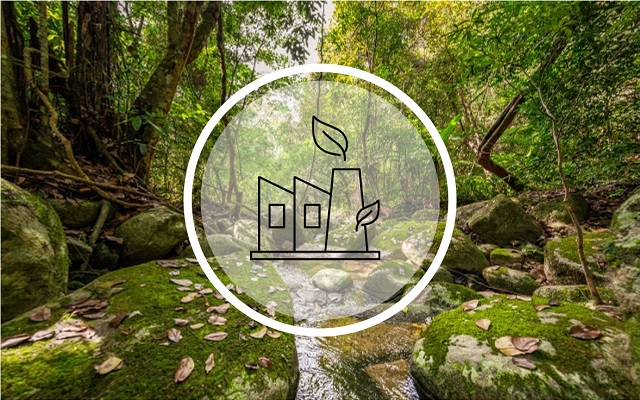Women cooperatives promoting clean cooking stoves

An estimated 70 per cent of Nepalese households cook with firewood. The use of biomass-based traditional cookstoves is one of the main causes of indoor air pollution and greenhouse gas emissions in Nepal. As women are the primary users of cookstoves, the use of traditional stoves has severe impacts on women’s health and well-being. This IKI Small Grants project promotes clean cooking solutions to replace traditional cookstoves in Sudoor Paschim Province. Five local women’s cooperatives were identified as key actors for a clean cooking initiative. They cooperate with two local governments and the producers of the clean cooking stoves. At the same time, the project develops plans, policies, and financial packages for the promotion of clean cookstoves. It further establishes business linkages between producers and women cooperatives for the promotion and sales of clean cookstoves in the targeted municipalities to establish a sustainable environment for energy-efficient cookstoves in the region.
INITIAL SITUATION
The two proposed municipalities have a total of 11,221 households, of which only 6.7 per cent have access to clean cooking solutions and 5.7 per cent are connected to the national grid. In addition, a lack of awareness on clean cooking solutions and access to alternative cooking technologies have been the inhibiting factors for moving to a higher energy ladder. For this reason, the use of traditional biomass-based cookstoves is one of the main causes of indoor air pollution and GHG emission in Nepal. The use of higher-tier stoves reduces firewood consumption by at least 10 per cent, thus directly reducing greenhouse gas emissions.
TARGET GROUP
The main beneficiaries of the intervention are women, as the project develops a women-led local supply chain for clean cookstoves. The project aims to develop the capacities of four women’s cooperatives as supply chain actors for the promotion and dissemination of cookstoves. The project also works with two municipalities to develop plans, strategies, and financial packages to promote clean cookstoves. Other target groups include cookstove manufacturers and retailers at national and provincial levels. The project contributes to transforming gender roles, improving livelihoods of the associated women group and their families, and establishing women as ‘change makers’ in the society. In the project women are at the centre of both supply and demand side of the stove business. Thus, the proposed intervention follows the philosophy of ‘for the women, by the women’.
APPROACH AND ACTIVITIES
The overall project goal is to achieve cleaner indoor air, lower greenhouse gas emissions, and a better economic situation for the target group. The project aims to promote clean cooking solutions to replace traditional cookstoves in the targeted municipalities by capacitating and mobilising local women cooperatives as stove entrepreneurs.
Five local women’s cooperatives act as key actors for the clean cooking initiative. The women’s cooperatives are best suited for this activity as they have strong local presence, their own membership base, and can provide credit facility for the sales of stoves, giving them the unique advantage to promote clean cookstoves.
The project strengthens women’s cooperatives through enhancing their entrepreneurial skills and business management, as well as raise awareness. Furthermore, the project conducts social marketing events to inform local households about clean cooking solutions. The project also collaborates with the local government to develop a financial package to promote clean cooking. Thus, the project contributes to develop a demand-based business ecosystem for clean cooking which is profitable, local, and sustainable.
Measures to ensure the sustainability of the project include capacity building on aftersales, marketing, demand creation, network building, and business plan development. Moreover, the project aims to reach a critical mass of households in the project region within the project period. In addition, the project aims to establish business linkages with stove manufacturers and retailers. In this way, the women’s cooperatives can function as central service providers for the promotion of clean cooking. In the result, the project develops a localised clean cooking supply chain led by women and contributes to transforming gender roles, improving the livelihoods of the associated women’s group and their families, and establish women as change makers in society.
CAPACITY DEVELOPMENT
IKI Small Grants supports RUDEC in their organisational capacity development through:
- Train in-house staff and executive members on project proposal development and fundraising
- Train in-house staff and executive members on Renewable Energy services and technologies
ABOUT THE ORGANISATION
The Rural Development and Empowerment Center Nepal (RUDEC) is a non-profit making and non-governmental organisation established in 1997. RUDEC was formed with the objective of wise utilisation of local resources with enhanced capacity of local people, and to empower vulnerable population for meaningful participation, equity, income generating activities, and building discrimination-free communities. The target group includes women, youth, people with disabilities, Dalit women, women with disabilities, and in particular vulnerable groups in communities.
